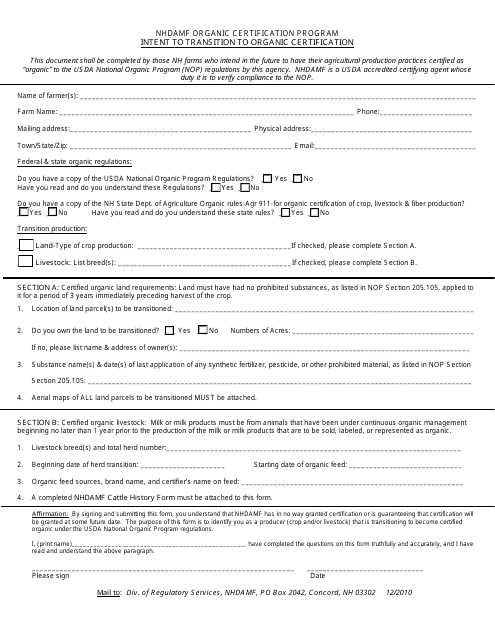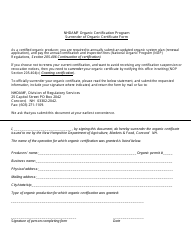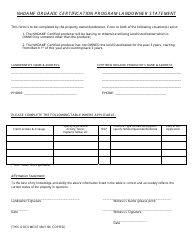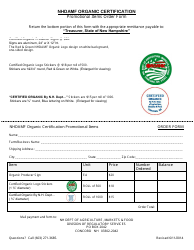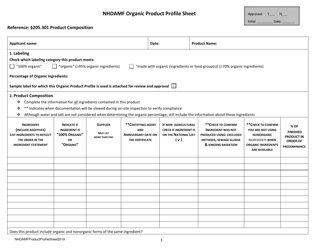Nhdamf Organic Certification Program Intent to Transition to Organic Certification - New Hampshire
Nhdamf Organic Certification Program Intent to Transition to Organic Certification is a legal document that was released by the New Hampshire Department of Agriculture, Markets & Food - a government authority operating within New Hampshire.
FAQ
Q: What is the Organic Certification Program in New Hampshire?
A: The Organic Certification Program in New Hampshire is a program that certifies agricultural products as organic.
Q: What is the intent to transition to organic certification?
A: The intent to transition to organic certification means that a farm or business is planning to become certified as organic in the future.
Q: What is the process of transitioning to organic certification?
A: The process of transitioning to organic certification involves following organic farming practices for a certain period of time, usually three years, to meet the requirements of organic certification.
Q: What are organic farming practices?
A: Organic farming practices involve using natural fertilizers, avoiding synthetic pesticides and genetically modified organisms (GMOs), and promoting biodiversity and environmental sustainability.
Q: Why is organic certification important?
A: Organic certification is important because it ensures that the agricultural products meet specific standards for organic production, which includes environmental sustainability and the absence of synthetic chemicals.
Q: Who oversees the Organic Certification Program in New Hampshire?
A: The Organic Certification Program in New Hampshire is overseen by the New Hampshire Department of Agriculture, Markets & Food.
Q: Can any farm or business be certified as organic?
A: No, farms or businesses must meet specific criteria and follow organic farming practices to be eligible for organic certification.
Q: Are there any fees associated with organic certification?
A: Yes, there are fees associated with organic certification, which cover the cost of inspection and certification services.
Q: What are the benefits of organic certification?
A: The benefits of organic certification include access to organic markets, higher prices for organic products, and the assurance of quality and environmental sustainability.
Q: How can I find organic products in New Hampshire?
A: You can find organic products in New Hampshire by looking for the USDA Organic seal or by visiting farmers markets, organic grocery stores, or directly contacting certified organic farms.
Form Details:
- Released on December 1, 2010;
- The latest edition currently provided by the New Hampshire Department of Agriculture, Markets & Food;
- Ready to use and print;
- Easy to customize;
- Compatible with most PDF-viewing applications;
- Fill out the form in our online filing application.
Download a fillable version of the form by clicking the link below or browse more documents and templates provided by the New Hampshire Department of Agriculture, Markets & Food.
